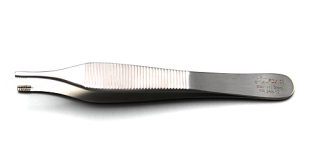Learn all about glossopharyngeal neuralgia pictures, symptoms, causes, treatment and surgery. The International Headache Society Guidelines define glossopharyngeal neuralgia as a “severe transient stabbing pain experienced in the ear, base of the tongue, tonsillar fossa, or beneath the base of the jaw”. Glossopharyngeal neuralgia is characterized by a sharp, jabbing pain deep in the throat, or in the tongue, ear, and tonsils, lasting a few seconds to a few minutes.
Much less often, multiple sclerosis, an infection or a tumor places pressure on the nerve. Along with learning your medical history and performing a physical, your neurospecialist may ask for other tests. Any infections or disease (multiple sclerosis or diabetes) that can damage the myelin sheath (covering of the nerve) could also contribute to neuralgia. A blood test can show extreme glucose levels that could be harming the myelin sheath.
Glossopharyngeal neuralgia is rare, and proper diagnosis is critical. Diagnosis involves an MRI to rule out the presence of a mass or growth that is pressing against either the 9th or 10th cranial nerve. The condition is usually caused by a blood vessel pressing against either cranial nerve, or this blood vessel shows up on certain MRIs as well.
The most effective drugs are antiseizure medicines such as carbamazepine. Antidepressants may help certain people.
In severe cases, when pain is difficult to treat, surgery to take pressure off the glossopharyngeal nerve may be needed. This is called microvascular decompression. The nerve can also be cut (rhizotomy). Both surgeries are effective. If a cause of the neuralgia is found, treatment should control the underlying problem.
What is Glossopharyngeal Neuralgia?
Glossopharyngeal neuralgia is a disorder that is associated with repeated episodes of severe pain in the tongue, throat, ear, and tonsils. These areas are all connected to the ninth cranial nerve, also called the glossopharyngeal nerve. Episodes of pain may last from a few seconds to a few minutes and usually occur on one side of the face. The pain may be triggered by swallowing, speaking, laughing, chewing, or coughing.
Glossopharyngeal Neuralgia Pictures
Glossopharyngeal Neuralgia Symptoms
Symptoms of glossopharyngeal neuralgia may include severe pain in areas connected to the ninth cranial nerve, which are:
- Nasopharynx, or back of the nose and throat
- Back of the tongue
- Ear
- Tonsil area
- Larynx or voice box.
Some episodes may also be associated with coughing or hoarseness. Episodes may last for seconds or a few minutes, and they may occur many times throughout the day and night. Episodes may be triggered by coughing, sneezing, swallowing, talking, laughing, or chewing.
Glossopharyngeal Neuralgia Causes
Glossopharyngeal neuralgia is believed to be caused by irritation of the ninth cranial nerve, called the glossopharyngeal nerve. Glossopharyngeal neuralgia can be caused by a tumor or infection in the region of ninth cranial nerve or by multiple sclerosis. In most cases, the source of irritation is never found. Some possible causes for this type of nerve pain (neuralgia) are:
- Blood vessels pressing on the glossopharyngeal nerve
- Growths at the base of the skull pressing on the glossopharyngeal nerve
- Tumors or infections of the throat and mouth pressing on the glossopharyngeal nerve
- Neurological diseases.
Glossopharyngeal Neuralgia Treatment
Glossopharyngeal neuralgia treatment is aimed at controlling the pain associated with the disorder. Over-the-counter pain medications are generally not very effective at controlling the pain. However, anti-seizure medications and anti-depressants may help relieve pain for some individuals. The application of local anesthetics to the affected region may also help control pain, but typically only for a short time. If an underlying cause for the disorder is identified, treatment is generally aimed at treating the underlying problem.
Pharmacotherapy forms the first line of treatment for GPN. The medications of choice are carbamazepine, gabapentin, and pregabalin although theoretically any membrane stabilizer can be used. In addition, low doses of selective serotonin reuptake inhibitors (SSRI) and vitamin B12 can be used. Baseline complete blood count, blood chemistry, and urinalysis are obtained before initiation of carbamazepine that forms the first line and gabapentin that is reasonable alternative for the treatment of GPN.
Glossopharyngeal Neuralgia Surgery
Glossopharyngeal neuralgia can be treated surgically if medications do not work. It can be treated by:
Rhizotomy is a surgical procedure to serve nerve roots in the spinal cord. The procedure effectively relieves chronic back pain and muscle spasms. For spinal joint pain, a facet rhizotomy may provide lasting low back pain relief by disabling the sensory nerve at the facet joint.
Percutaneous stereotactic rhizotomy (PSR) is usually performed by a neurosurgeon as an outpatient procedure in a radiology department or an operating room. The procedure typically takes about 1 to 2 hours.
Micro vascular Decompression (MVD) is a surgery to gently reroute the blood vessel from compressing the nerve by padding the artery with a sponge. Surgery is performed under general anesthesia and requires a 1 to 2 day hospital stay.
 Health & Care Information
Health & Care Information 


